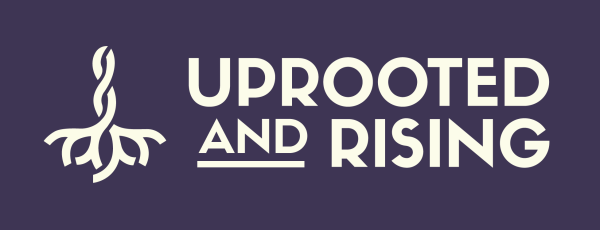Sharing this piece from the Community Alliance for Global Justice's Food Justice Project listserv.
Through political action and anti-oppressive organizing and community-building, CAGJ's Food Justice Project seeks to challenge and transform the globalized, industrial, corporate-driven food system and promote existing alternatives as we join the global struggle for food sovereignty for all!http://wwww.seattleglobaljustice.org/food-justice
 |
 |
 |
There will be a mass video conference call on Coronavirus, food sovereignty, and higher education this Thursday at 8pm Eastern Time. Sign up here!
Dear Community,
COVID-19 has reminded us that our society and our communities are only as strong as the most vulnerable among us, and the systems we have to care for one another. The risk is high for everyone and it is especially high for those who are older and those with weak immune systems. It is also very high for those who can’t social distance - people in prisons, detention centers and homeless shelters and workers who are doing immediately necessary work, for instance healthcare and grocery store workers. The U.S. government as well as many state and local agencies have been slow to act – behind on testing, slow to shut down business as usual, slow to offer healthcare access and relief. COVID-19 is also revealing the cracks in our food system - reliance on complex global supply chains, widespread food insecurity, exploitation of workers, and factory farming all make us vulnerable to epidemics.
In light of government and corporate failure, our communities are taking our wellbeing into our own hands.
We are putting old tools to new purposes - drawing on the skills and networks that we have been relying on for generations. Pooling resources to support food service workers who are being laid off en mass. Figuring out how to get food to people who live far from grocery stores, can’t drive, and cannot risk public transportation. Learning new recipes as disrupted supply chains mean that we cannot access the foods we are accustomed to. These are all beautiful, flexible ways that we are addressing the crisis -- and they invite us to imagine a fuller resilience. What if all workers had excellent pay, job security, healthcare and paid sick leave? What if every other household had a garden? What if local farms were thriving and could be spaces of community healing and abundance? What if we all had community markets nearby so we could access food in spite of disruptions to transportation systems? What if we had food sovereignty?
As a movement for food sovereignty, we have the imagination and the skills that are most needed in this moment. Let’s build mutual aid in our communities, and let’s escalate the fight for food sovereignty at higher ed institutions and beyond. Those who seek to exploit us and our communities may be adjusting, but they are not disappearing.
Check out this list of resources specifically for organizers and students:
Here are some things we can do now (a taste of what we will discuss on the call):
Get together - but not in person. Identify people and networks in your community that might want to strategize about food sovereignty. Organize video meetings and remember to use encrypted software like Zoom or Jitsi, which is free, for sensitive conversations, for instance action-planning. Be sure to consider access for those who may not have computers or a good internet connection.
Identify needs in your community. Do farmers need help with spring planting? Do elders need help with grocery shopping? Do workers who are laid off need immediate relief? Do food chain workers need paid sick leave? Do students need access to housing and food? Do prisoners need soap or money for bail? Consider which of these should be met through direct mutual aid and which should be campaign demands?
Identify resources in your community. Do some people have space where others could grow food? Do people have extra rooms where they could house the houseless? Are there people who can cook or transport food safely to those who need it?
Consider campaigns. Now may be the time to demand that institutions pay workers during campus closures or guarantee them a return to their jobs. It may be the time to demand that students get refunds on room and board to pay for current living expenses. Now may be the time to be especially vigilant about corporate deals moving quickly now that there is no one around to watch them.
Find alternative tactics. Just because we are social distancing doesn’t mean we can’t take action. Indigenous students in the University of California system and allies are currently escalating a campaign to protect Mauna Kea using video to bring the movement into ceremony along with video petitions and call-ins. Let’s get creative with digital action! Additionally, organizers across the country are considering banner drops, die-ins and street art as in-person actions that require very little social contact.
Join the Uprooted & Rising mass videoconference call about Coronavirus, food sovereignty, and higher education this Thursday at 8pm ET (7pm CT/6pm MT/5pm PT).
RSVP here!
|
|
|

